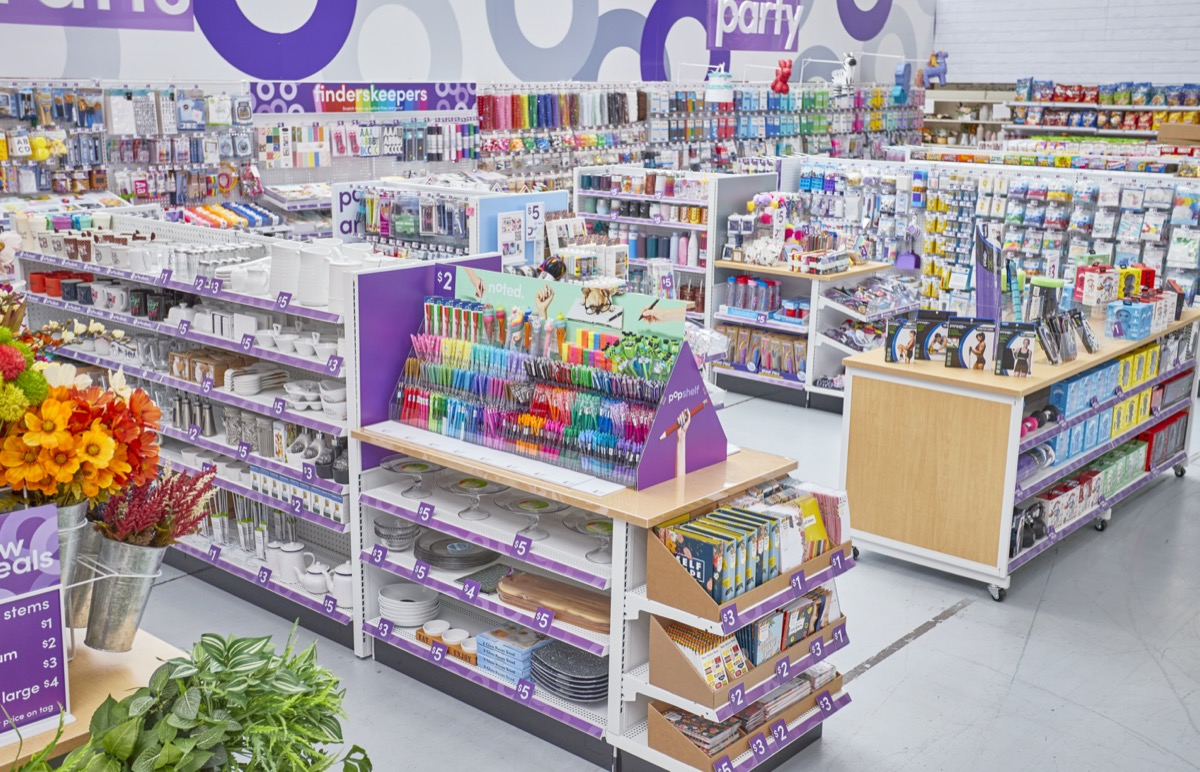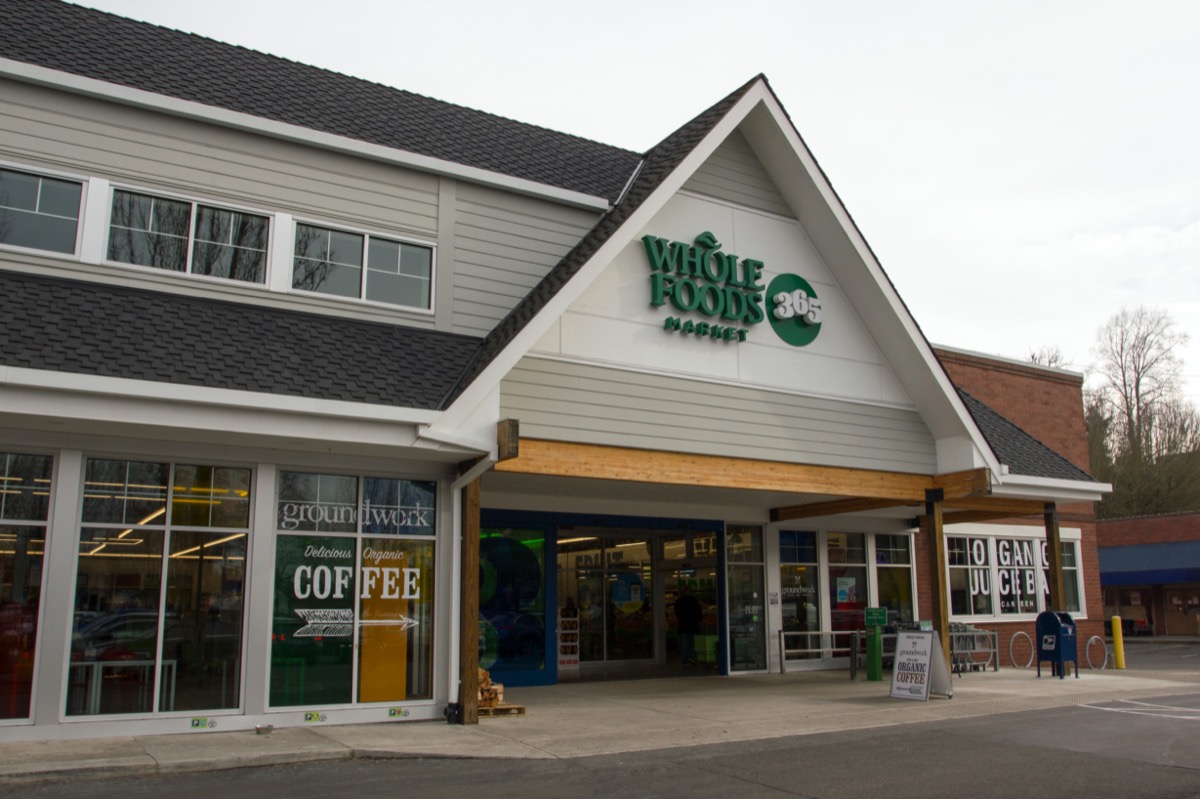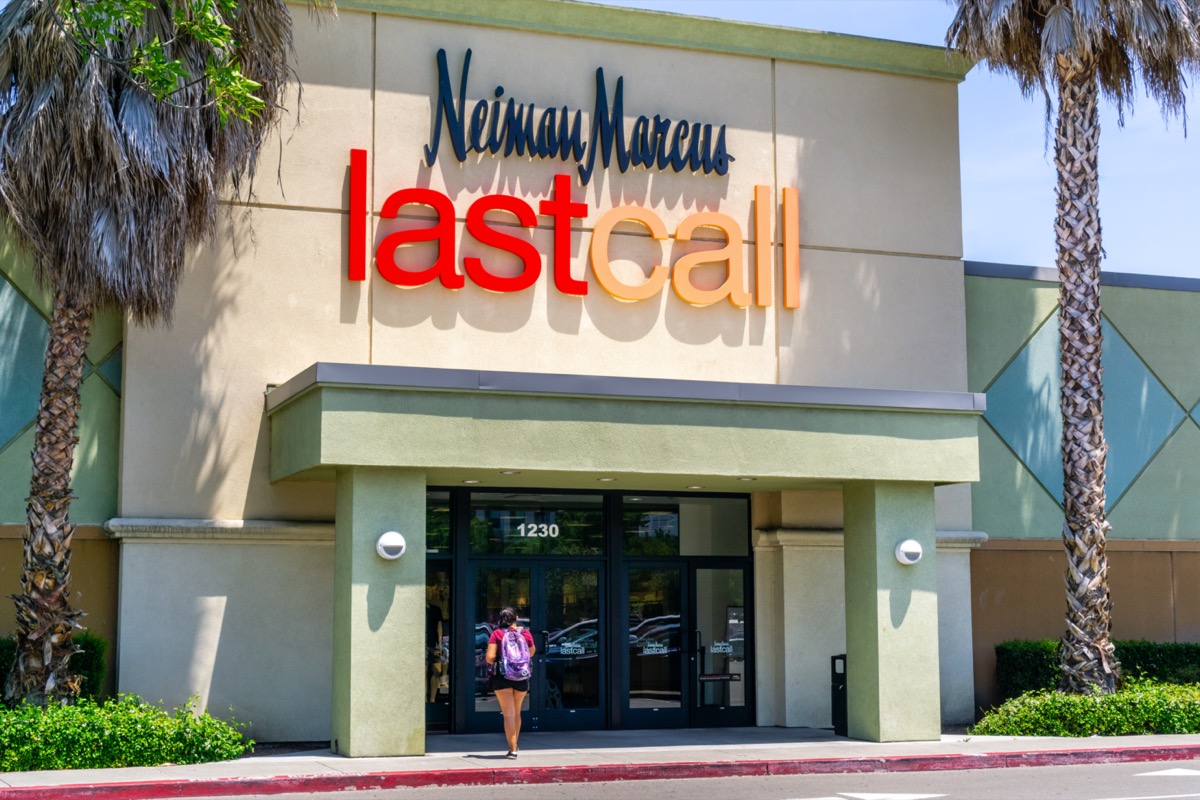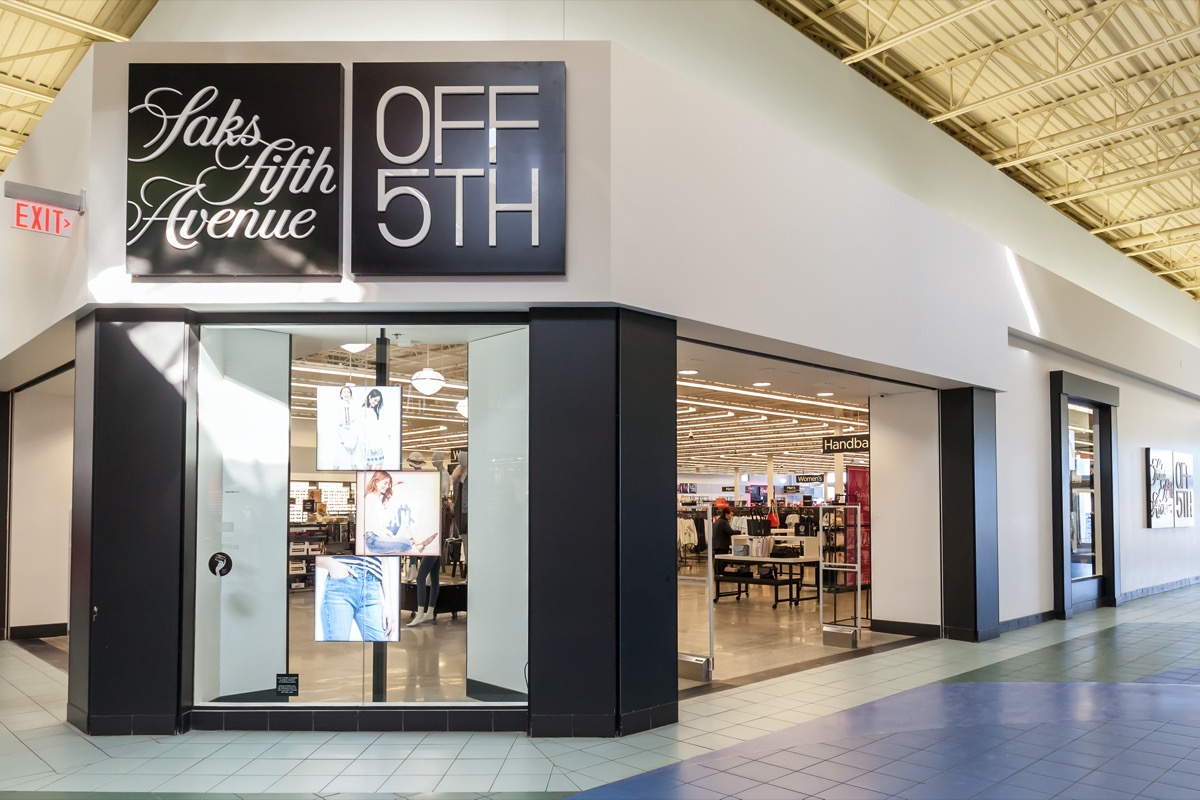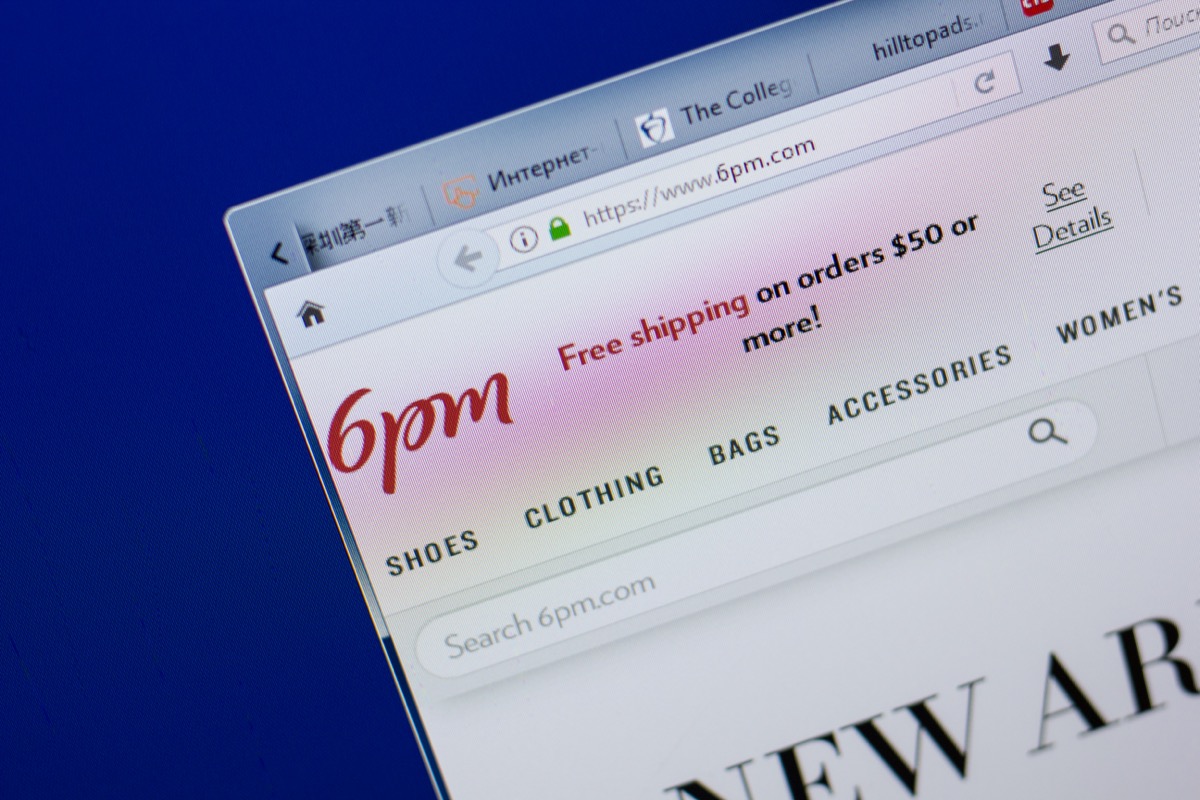“At Popshelf, customers will find a differentiated retail concept that seeks to bring joy to their shopping experiences,” said Dollar General CEO Todd Vasos in a statement. In addition to Popshelf-specific merchandise, the store will carry a selection of items from some of Dollar General’s private brands. Emily Taylor, Dollar General’s executive vice president and chief merchandising officer, told The Wall Street Journal that the new store enables customers to “[treat] themselves without the guilt associated with overspending.” The first two Popshelf stores will open in Hendersonville and Clarksville, Tennessee, with a total of 30 stores set to welcome customers by the end of 2021. Of course, Dollar General isn’t the only brand that’s pivoted to attract a new customer base in recent years. Read on to discover which retailers have created price-conscious lines to appeal to consumers. And for more insight into the wild world of retail, check out these 6 Beloved Stores You May Never Shop at Again Because of Coronavirus. Nordstrom, which operates full-line department stores in the U.S., Canada, and Puerto Rico, has earned a major following thanks to its discount arm, Nordstrom Rack. In fact, there are now more than twice as many Nordstrom Rack stores as there are Nordstroms—250 and 117, respectively. While Nordstrom closed 16 of its full-price stores amid the coronavirus pandemic, no Nordstrom Racks have been shuttered. And for more insight into your favorite shopping destinations, This Popular Clothing Chain Just Announced It’s Closing 250 Stores. Whole Foods gave customers some respite from their “Whole Paycheck” price tag when they opened the cheaper offshoot 365 Market in 2016. However, in 2019, the company announced that it would be converting all of its 365 stores back into regular Whole Foods locations.ae0fcc31ae342fd3a1346ebb1f342fcb “As we have been consistently lowering prices in our core Whole Foods Market stores over the past year, the price distinction between the two brands has become less relevant,” said Whole Foods CEO John Mackey in a company memo, as reported by Supermarket News. Department store Neiman Marcus sought to address the classic “champagne taste, beer budget” dilemma with its Neiman Marcus Last Call stores, which sold designer goods at discounted prices. However, with coronavirus putting a strain on the company, Neiman Marcus shuttered 22 of its full-price stores after filing for bankruptcy in 2020. The brand emerged from the bankruptcy process in September, and while it was initially reported that all Neiman Marcus Last Call stores would be closing, five stores will remain open, Newsday reports. And for more great shopping news delivered to your inbox, sign up for our daily newsletter. Yet another department store to find success with the off-price model, Saks Fifth Avenue launched outlet store Clearinghouse in 1990, changing the name to Saks Off 5th five years later. Amid COVID, an unspecified number of Saks employees have been laid off, according to Retail Dive, although Marc Metrick, president of Saks Fifth Avenue, told CNBC in June that the business’ foot traffic had not been unduly affected by coronavirus. Footwear retailer Zappos is a different kind of fashion brand competing in the outlet space—but in this case, exclusively online. The company owns 6pm, which sells discounted shoes, clothing, handbags, and accessories. And for more news on your favorite brands, This Beloved 200-Year-Old Shoe Company Could Be Disappearing.
